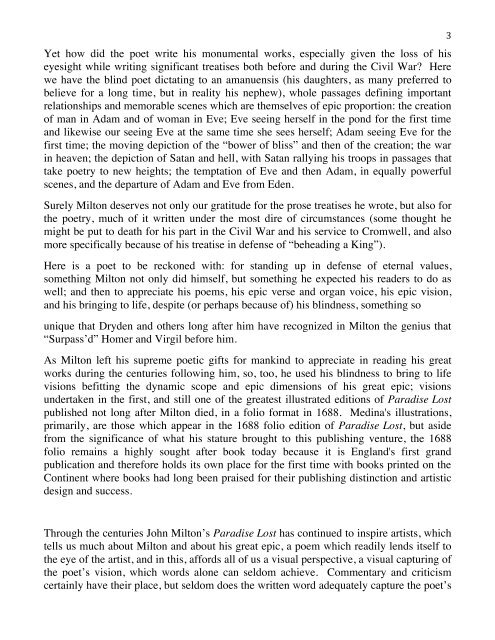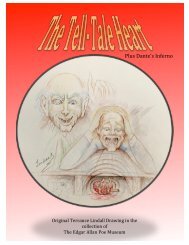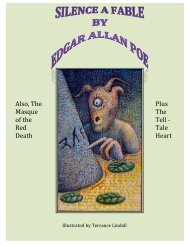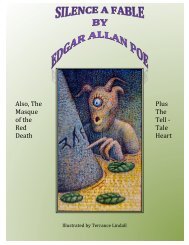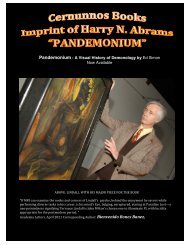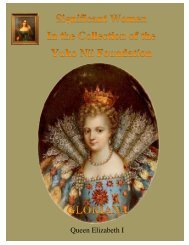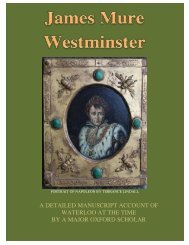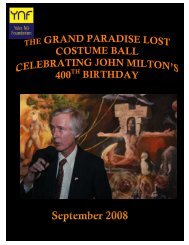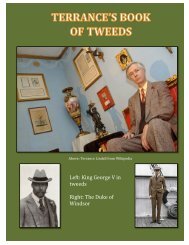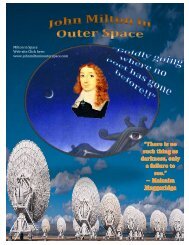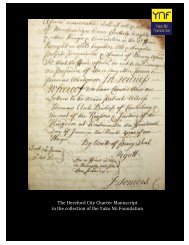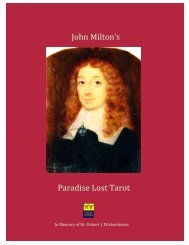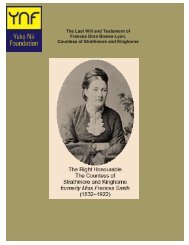The Acrostic Paradise Lost by John Milton and Terrance Lindall
The first ever acrostic that tells the story as the proem goes along. Contains most of Lindall's art for Paradise Lost. Signed and numbered hardcover is $300. milton@wahcenter.net
The first ever acrostic that tells the story as the proem goes along. Contains most of Lindall's art for Paradise Lost. Signed and numbered hardcover is $300. milton@wahcenter.net
You also want an ePaper? Increase the reach of your titles
YUMPU automatically turns print PDFs into web optimized ePapers that Google loves.
! 3!<br />
Yet how did the poet write his monumental works, especially given the loss of his<br />
eyesight while writing significant treatises both before <strong>and</strong> during the Civil War? Here<br />
we have the blind poet dictating to an amanuensis (his daughters, as many preferred to<br />
believe for a long time, but in reality his nephew), whole passages defining important<br />
relationships <strong>and</strong> memorable scenes which are themselves of epic proportion: the creation<br />
of man in Adam <strong>and</strong> of woman in Eve; Eve seeing herself in the pond for the first time<br />
<strong>and</strong> likewise our seeing Eve at the same time she sees herself; Adam seeing Eve for the<br />
first time; the moving depiction of the “bower of bliss” <strong>and</strong> then of the creation; the war<br />
in heaven; the depiction of Satan <strong>and</strong> hell, with Satan rallying his troops in passages that<br />
take poetry to new heights; the temptation of Eve <strong>and</strong> then Adam, in equally powerful<br />
scenes, <strong>and</strong> the departure of Adam <strong>and</strong> Eve from Eden.<br />
Surely <strong>Milton</strong> deserves not only our gratitude for the prose treatises he wrote, but also for<br />
the poetry, much of it written under the most dire of circumstances (some thought he<br />
might be put to death for his part in the Civil War <strong>and</strong> his service to Cromwell, <strong>and</strong> also<br />
more specifically because of his treatise in defense of “beheading a King”).<br />
Here is a poet to be reckoned with: for st<strong>and</strong>ing up in defense of eternal values,<br />
something <strong>Milton</strong> not only did himself, but something he expected his readers to do as<br />
well; <strong>and</strong> then to appreciate his poems, his epic verse <strong>and</strong> organ voice, his epic vision,<br />
<strong>and</strong> his bringing to life, despite (or perhaps because of) his blindness, something so<br />
unique that Dryden <strong>and</strong> others long after him have recognized in <strong>Milton</strong> the genius that<br />
“Surpass’d” Homer <strong>and</strong> Virgil before him.<br />
As <strong>Milton</strong> left his supreme poetic gifts for mankind to appreciate in reading his great<br />
works during the centuries following him, so, too, he used his blindness to bring to life<br />
visions befitting the dynamic scope <strong>and</strong> epic dimensions of his great epic; visions<br />
undertaken in the first, <strong>and</strong> still one of the greatest illustrated editions of <strong>Paradise</strong> <strong>Lost</strong><br />
published not long after <strong>Milton</strong> died, in a folio format in 1688. Medina's illustrations,<br />
primarily, are those which appear in the 1688 folio edition of <strong>Paradise</strong> <strong>Lost</strong>, but aside<br />
from the significance of what his stature brought to this publishing venture, the 1688<br />
folio remains a highly sought after book today because it is Engl<strong>and</strong>'s first gr<strong>and</strong><br />
publication <strong>and</strong> therefore holds its own place for the first time with books printed on the<br />
Continent where books had long been praised for their publishing distinction <strong>and</strong> artistic<br />
design <strong>and</strong> success.<br />
Through the centuries <strong>John</strong> <strong>Milton</strong>’s <strong>Paradise</strong> <strong>Lost</strong> has continued to inspire artists, which<br />
tells us much about <strong>Milton</strong> <strong>and</strong> about his great epic, a poem which readily lends itself to<br />
the eye of the artist, <strong>and</strong> in this, affords all of us a visual perspective, a visual capturing of<br />
the poet’s vision, which words alone can seldom achieve. Commentary <strong>and</strong> criticism<br />
certainly have their place, but seldom does the written word adequately capture the poet’s


